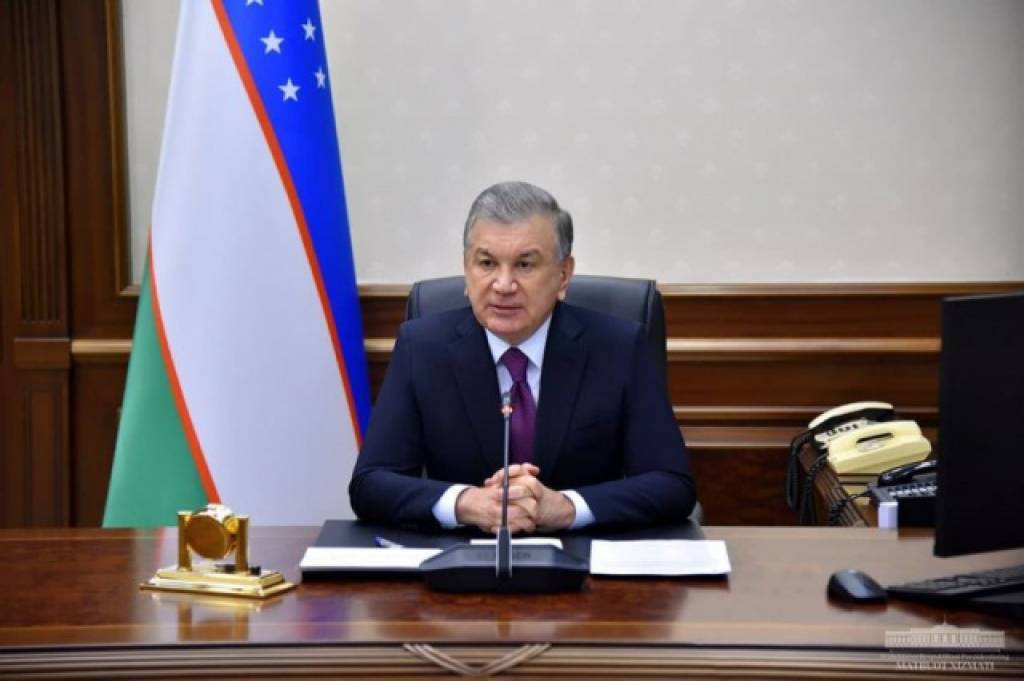President Shavkat Mirziyoyev has chaired a meeting on improving the activities of the national hydrometeorological service.
On November 3, President Shavkat Mirziyoyev held a meeting on priority tasks of improving the activities of the national hydrometeorological service.
The hydrometeorological service is important for many sectors, such as agriculture, energy, transport and ecology. But due to the lack of proper attention over the years, the system in Uzbekistan has lagged behind the times. Aerial observations have not been conducted since 1995, which reduces the reliability of weather data. According to international standards, there should be 4,000 stations in Uzbekistan, but in reality they number just 335.
The economic and technical capacities of the Hydrometeorological Service Center is outdated, and the economic profitability is low. In particular, over the past 9 months, the center covered only 6 percent of expenses from its own revenues.
“Hydrometeorology is one of the most important areas for ensuring our safety. Today, the main task is to change the quality of services in the system”, Shavkat Mirziyoyev said.
Presentation on the phased commercialization of the Center’s services was also held at the meeting.
Today, the meteorological data is provided free of charge to 35 agencies, including about 20 commercial organizations. The charge for services is lower than their cost, and the tariffs have not been revised for the last 15 years.
The Head of the state noted the importance of revising prices and expanding the coverage of paid services.
It was noted that there are many untapped resources. For example, one solar power station will be built next year in Karmana and Nurabad districts on the basis of a public-private partnership, and in 2022 – three solar and one wind power plants. These stations will use the services of the meteorological service to plan their power generation.
In addition, paid services can be provided to Internet portals for weather forecasting, clusters and foreign research institutions.
The Hydrometeorological Center stores observational data for the last 100 years. That is 18 million sheets of paper. The task was set to fully digitize this data.
Shortcomings in the material and technical support of the meteorological service were considered in detail. It was noted that only 14 out of 70 weather stations are automated. The weather forecast is made using software from a decade ago, which negatively affects the efficiency of preparing data on weather and natural disasters. It was emphasized that the existing three weather radars in Tashkent, Samarkand and Nukus are hardly enough.
In this regard, it was instructed to install radars in Bukhara, Navoi, Surkhandarya and Namangan regions in the coming years, automate all meteorological stations and build new ones. The implementation of these measures will improve the quality and efficiency of the meteorological service.
Uzbekistan Hydrometeorological Center is the regional center of the World Meteorological Organization. Stressing the importance of preserving this status, the Head of the state urged the executives to organize a regional hub for collecting, processing and storing backup data in Samarkand in 2022.
Meteorological data is instrumental in ensuring the efficiency of agriculture. Enterprises of the agro-industrial complex abroad are provided with more than 20 types of services like determination of plant moisture, precipitation, soil temperature. In Uzbekistan, there are only 9 types of such services. Agro-meteorological observations are carried out at 96 stations and posts, their number has increased by only 5 over the past 10 years, which is why the reliability of forecasts does not exceed 80-85 percent.
The Center for the Hydrometeorological Service was given directives to establish additional agro-meteorological posts in each region next year. The President pointed to the urgency of installing agro-meteorological stations and measuring instruments in Jizzakh and Kashkadarya regions within the framework of a grant from the Food and Agriculture Organization, expanding the range of services to 14, and then introducing this practice across the country. The task was set to develop software for servicing farms and clusters online.
Shavkat Mirziyoyev paid special attention to the development of science and improving the potential of human resources in the sphere. The President proposed to set up – in the next academic year – a faculty of hydrometeorology at the National University of Uzbekistan, and launch training and advanced training of modern mid-level specialists at Tashkent Hydrometeorological Higher Technical School.
The meeting participants also discussed issues concerning wages in the sector and agreed on the introduction of a system of bonuses for many years of experience.







